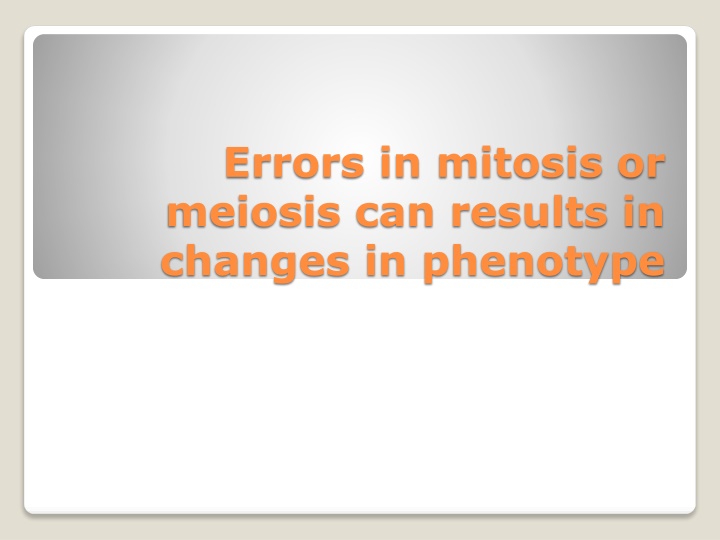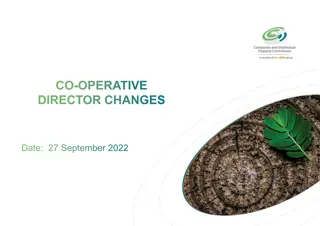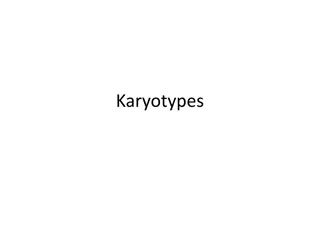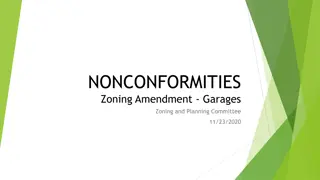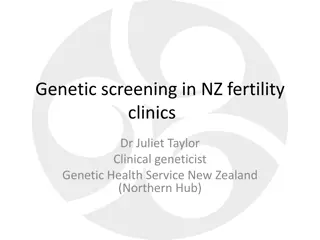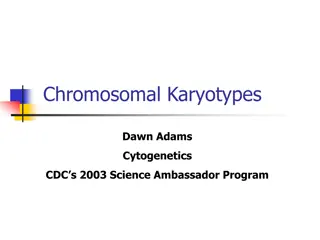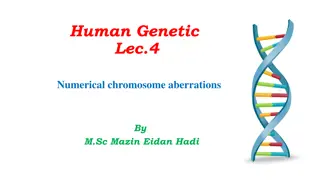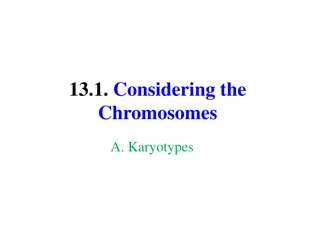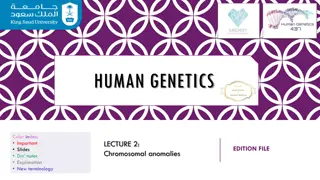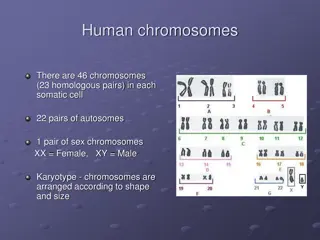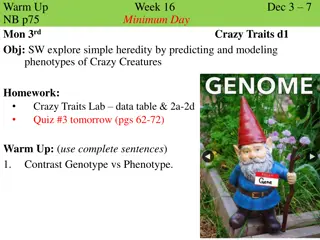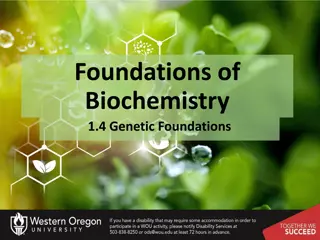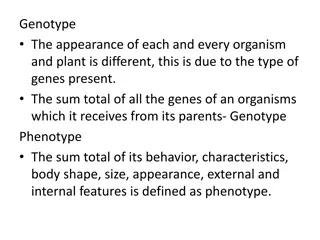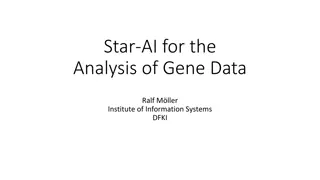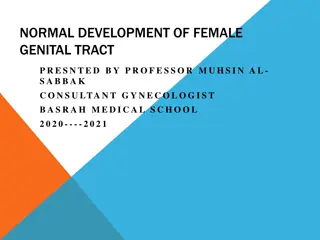Chromosomal Alterations and Their Impact on Phenotype
Errors in mitosis or meiosis can result in changes in phenotype, often due to alterations in chromosome structure such as deletion, duplication, inversion, and translocation. Nondisjunction can lead to abnormal chromosome number, resulting in disorders like aneuploidy. Polyploidy, with extra complete sets of chromosomes, is common in plants. Understanding these chromosomal alterations sheds light on genetic disorders and abnormalities in organisms.
Download Presentation

Please find below an Image/Link to download the presentation.
The content on the website is provided AS IS for your information and personal use only. It may not be sold, licensed, or shared on other websites without obtaining consent from the author.If you encounter any issues during the download, it is possible that the publisher has removed the file from their server.
You are allowed to download the files provided on this website for personal or commercial use, subject to the condition that they are used lawfully. All files are the property of their respective owners.
The content on the website is provided AS IS for your information and personal use only. It may not be sold, licensed, or shared on other websites without obtaining consent from the author.
E N D
Presentation Transcript
Errors in mitosis or meiosis can results in changes in phenotype
Breakage of a chromosome can lead to four types of changes in chromosome structure: Deletion removes a chromosomal segment Duplication repeats a segment Inversion reverses a segment within a chromosome Translocation moves a segment from one chromosome to another Alteration of Chromosome Structure
Fig. 15-15 A B C D E F G H A B C E F G H Deletion (a) A B C D E F G H A B C B C D E F G H Duplication (b) A B C D E F G H A D C B E F G H Inversion (c) A B C D E F G H M N O C D E F G H (d) Reciprocal translocation M N O P Q R A B P Q R
In nondisjunction, pairs of homologous chromosomes do not separate normally during meiosis As a result, one gamete receives two of the same type of chromosome, and another gamete receives no copy Abnormal Chromsome Number
Alterations of chromosome number and structure are associated with some serious disorders Some types of aneuploidy appear to upset the genetic balance less than others, resulting in individuals surviving to birth and beyond These surviving individuals have a set of symptoms, or syndrome, characteristic of the type of aneuploidy Human disorders due to chromosomal alterations
Fig. 15-13-3 Meiosis I Nondisjunction Meiosis II Nondisjunction Gametes n 1 n + 1 n 1 n n n + 1 n + 1 n 1 Number of chromosomes (b) Nondisjunction of sister chromatids in meiosis II (a) Nondisjunction of homologous chromosomes in meiosis I
Aneuploidy results from the fertilization of gametes in which nondisjunction occurred Offspring with this condition have an abnormal number of a particular chromosome Polyploidy is a condition in which an organism has more than two complete sets of chromosomes Triploidy (3n) is three sets of chromosomes Tetraploidy (4n) is four sets of chromosomes Polyploidy is common in plants, but not animals Polyploids are more normal in appearance than aneuploids
Down Syndrome Klinefelter Syndrome Turner Syndrome Jacob s Syndrome (super male) Edward s Syndrome Cri du chat (cry of the cat) Syndrome Patau s Syndrome Wolf-Hirschhorn Syndrome Chromosome Number/Structure Disorders
Form groups Select a Disorder (1st come 1st serve) Research Disorder Identify Problem State Symptoms Life expectancy Treatments or Cures Record info on poster paper Share with class Assignment
